![]() — หน้าแรก — เกาะติดข่าว
— หน้าแรก — เกาะติดข่าว
ข่าวเศรษฐกิจและธุรกิจประจำสัปดาห์
-
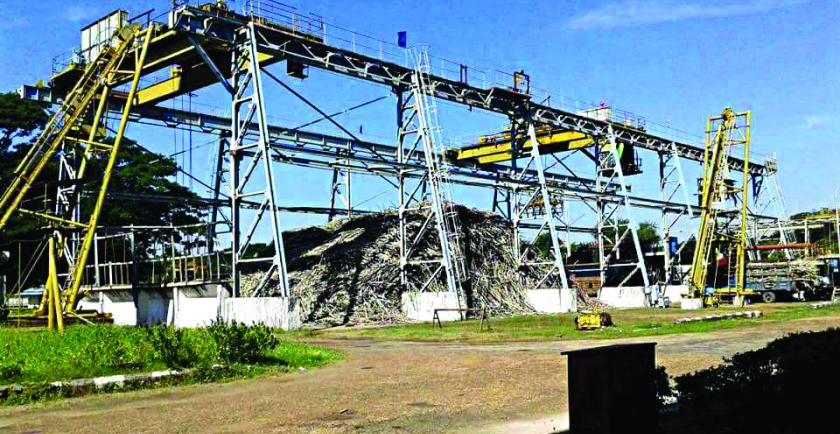
This month, inspection teams will submit a final report on 28 state-owned factories whose operations were suspended by Pyidaungsu Hluttaw due to the lack of profits
By the end of December, inspection teams will submit a final report for inspections that covered 28 state-owned factories whose operations were suspended by Pyidaungsu Hluttaw, Assembly of the Union, because they were not making any profit. In September 2017, the Lower House Investment and Industrial Development Committee formed two teams comprised of officials from the Planning and Finance Ministry and the Ministry of Industry and representatives of the Union of Myanmar Federation of Chambers of Commerce and Industry (UMFCCI) including Member of Parliaments, and scholars to assess the profit and loss of the state-owned factories. Initial reports of the examination had been submitted to the Pyidaungsu Hluttaw at the end of November, the final report with findings and recommendations is planned to summit to the parliament by the end of December. -
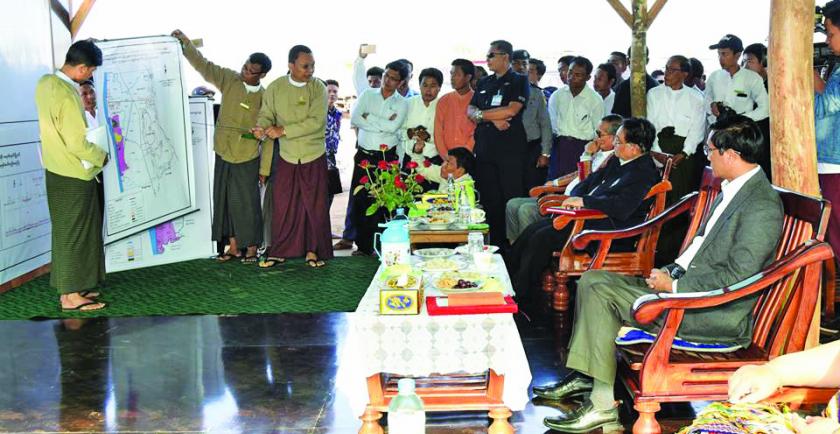
In order to develop the fishery industry, Myanmar government is planning a fish auction market and development zone in southern coastal city of Dawei in Tanintharyi Region
Myanmar is planning a fish auction market and a development zone in southern city of Dawei in Tanintharyi region where an economic zone and a deep-sea port project are underway, Myanmar News Agency reported Monday. The goal of Thayetchaung fish market project involves acquiring technology related to fishery business and production of finished goods of international standard for internal and international distribution, Second Vice President U Henry Van Thio said during an in-spection trip to the economic zone Sunday. Project design in different stages is being invited and environmental conservation measures to protect fish resources are also being sought. The vice president called for creating job opportunities, electricity and water supply for the regional development and fishery export. -
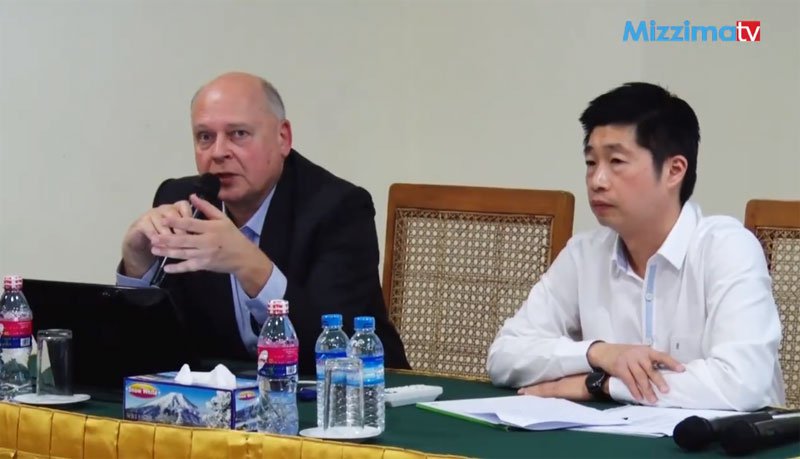
The lack of economic policy direction is the main reason behind the significant drop in short-term business sentiment (second Myanmar business confidence survey conducted by Roland Berger with the Union of Myanmar Federation of Chambers of Commerce and Industry - UMFCCI)
The second Myanmar business confidence survey conducted by Roland Berger in partnership with Union of Myanmar Federation of Chambers of Commerce and Industry in the latter half of 2017, shows a significant drop in short-term business sentiment from (73 percent) a year ago to (49 percent) this year. The core reason for the drop in confidence is lack of a clear economic policy and plan, cited by 77 percent of companies as a significant or very significant issue. However, 88 percent of companies remain optimistic about Myanmar's mid- to long-term outlook. In December 2016, Roland Berger published the first Myanmar business survey. The results showed an enormous sense of optimism among both local and international investors: 73 percent of business people expected the business landscape to (rapidly) improve. This optimism, which was arguably unparalleled worldwide, resulting from the political and economic changes the country had recently undergone. These included economic reforms particularly in the telecom sector, and democratic elections and a peaceful transition to a new government, as well as the subsequent lifting of US sanctions. -
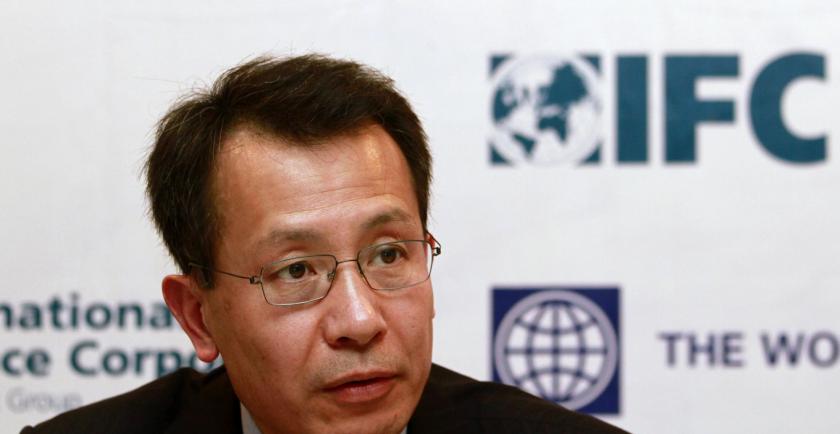
With the support of IFC, a member of the World Bank Group, the Department of Agriculture of Myanmar will launch Myanmar’s Good Agriculture Practices (GAP) to improve sustainable farming practices
With the goal of improving sus¬tainable farm¬ing practices in Myan¬mar; IFC a member of the World Bank Group, Sup¬ported the Department of Agriculture of Myanmar’s Ministry of Agriculture, Livestock and Irrigation (MoALI) will launch My¬anmar’s Good Agricul¬tural Practices (GAP) Pro¬tocol and Guidelines. The objective of the guidelines is to boost the productiv¬ity and profitability of farmers through sustain-able farming. The GAP Protocol and Guidelines for 15 crops including tomatoes, peanuts, rice, and chili, among others, will guide cultivators on how to produce safe and qual¬ity products for the local and international mar¬kets. It will further aim to improve access to quality agricultural inputs, and help farmers develop the necessary skills for sus-tainable farming. -
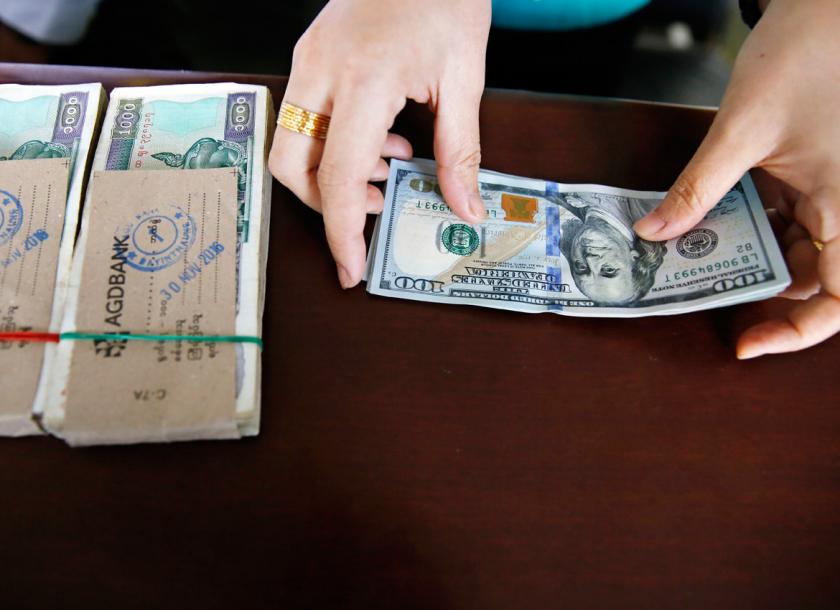
In order to help the local export business sector, the Central Bank of Myanmar (CBM) will permit foreign banks to provide export financing services
Foreign banks will be permitted by the Central Bank of Myanmar (CBM) to provide export financing services. The move, which aims to help local export businesses gain access to working capital, was announced Monday by the CBM and welcomed by the business community. “In the trading sector, the local banks are not able to provide sufficient financing services to help businesses in the sector. However, we will have to wait and see whether the foreign banks provide assistance when we have goods in our hands or when the purchase order arrives from foreign countries,” said U Ngwe Tun, who runs the Genius coffee production business distributing to both local and international markets. Meanwhile, foreign banks wanting to provide other banking services related to export financing will still need approval from the CBM, according to the statement. -

DICA clarified that the requirement of hiring foreign experts announced in October are only applicable to firms permitted by the Myanmar Investment Commission (MIC)
The government’s newly expanded requirements on hiring foreign employees announced in October are only applicable to companies permitted by the Myanmar Investment Commission (MIC). The Directorate of Investment and Company Administration (DICA) issued a statement to clarify its earlier announcement - “Appointment of foreign experts” (AFE) - which entered into force on October 21. Under the October statement, a company is required to submit a work permit application for the appointment of a foreign expert and it must also notify the MIC together with documentary evidence of resignation and departure airline ticket if the foreign expert resigns prior to, or at the end of the permitted period in Myanmar. There was confusion over whether the AFE was applicable to all investors wishing to hire foreigners. -
National Instruments (NI), a global provider of platform-based engineering systems, kick starts Myanmar operations in academia
NATIONAL INSTRUMENTS (NI), a global provider of platform-based engineering systems, is intensifying its activities in Myanmar with the creation of new platforms for teaching and research for the academic segment. Matej Krajnc, NI’s managing director for Asean, Australia and New Zealand, said in an exclusive interview that the firm has partnered with Synopsis Technology Myanmar to offer its innovative products and technical solutions to the local market. He said both firms shared the same vision in leveraging the platform. “We started with academia. But we believe there will be a lot of other activities in Myanmar because our products are distributed globally,” he said. “Right now, we are focusing more on quality and support. We are really looking at how we can bring our technology to Myanmar, how we can help our partners, customers and the society. We need to understand the market better.” -
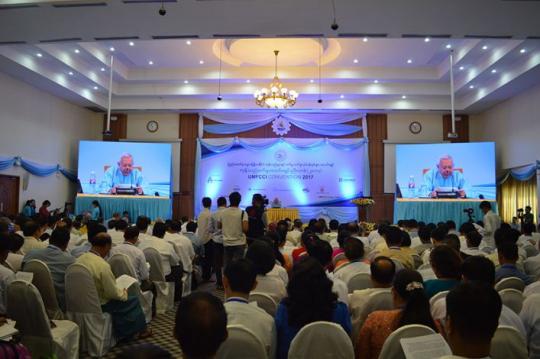
The economic advisor to UMFCCI suggested a four-point remedy for reviving the ailing economy
Dr U Myint, an economic adviser to the Union of Myanmar Federation of Chambers of Commerce and Industry suggested a four-point remedy for reviving the ailing economy at the UMFCCI Convention 2017 on Sunday. In his opening speech, Dr U Myint, who served as the presidential economic adviser, said: “Myanmar is not in a position to keep pace with Laos during the remaining term of the current government. In 2000, Myanmar’s per capita GDP stood at US$193.20. In 2010, it was ranked at 9th position with US$987.70, overtaking Cambodia. Until 2015-2016 fiscal year (in the time of Thein Sein administration), Myanmar could retain its status. Firstly, Myanmar needs to keep pace with Laos in order to keep abreast with its neighbours, Vietnam, the Philippines, Indonesia, Thailand and Malaysia. -

Myanmar government is looking for regulations to govern the technology-based-ride-hailing companies
The Myanmar government is looking at coming out with regulations to govern the technology-based ride-hailing app space, seeking to provide a level playing field to the operators, according to DealstreetAsia. -

Government is ready to offer loans with an interest rate of 8 percent to SMEs, prioritizing import substitution-related and export-oriented manufacturing businesses
The country’s biggest business and industry advocacy group has called on the government to change its policy on loans to better cater for the needs of small businesses. The government needs to change its loan policy, decrease interest rate, increase loan period and support the acquisition of technical know-how for SMEs, U Wai Phyo, Union of Myanmar Federation of Chambers of Commerce and Industry (UMFCCI) vice-chair, remarked. In response, the government is throwing its weight behind small and medium-sized enterprises (SMEs) and plans to offer loans to them, according to U Kyaw Win, Minister of Planning and Finance. The minister made the remarks during the UMFCCI annual general |meeting which took place in Yangon on December 10. SMEs in the country have a long way to catch up with those in neighbouring countries because of technological deprivation. Products manufactured in those countries have also displaced domestic products.
เกาะติดข่าว
Copyright © 2014 Business Information Center All Rights Reserved.







